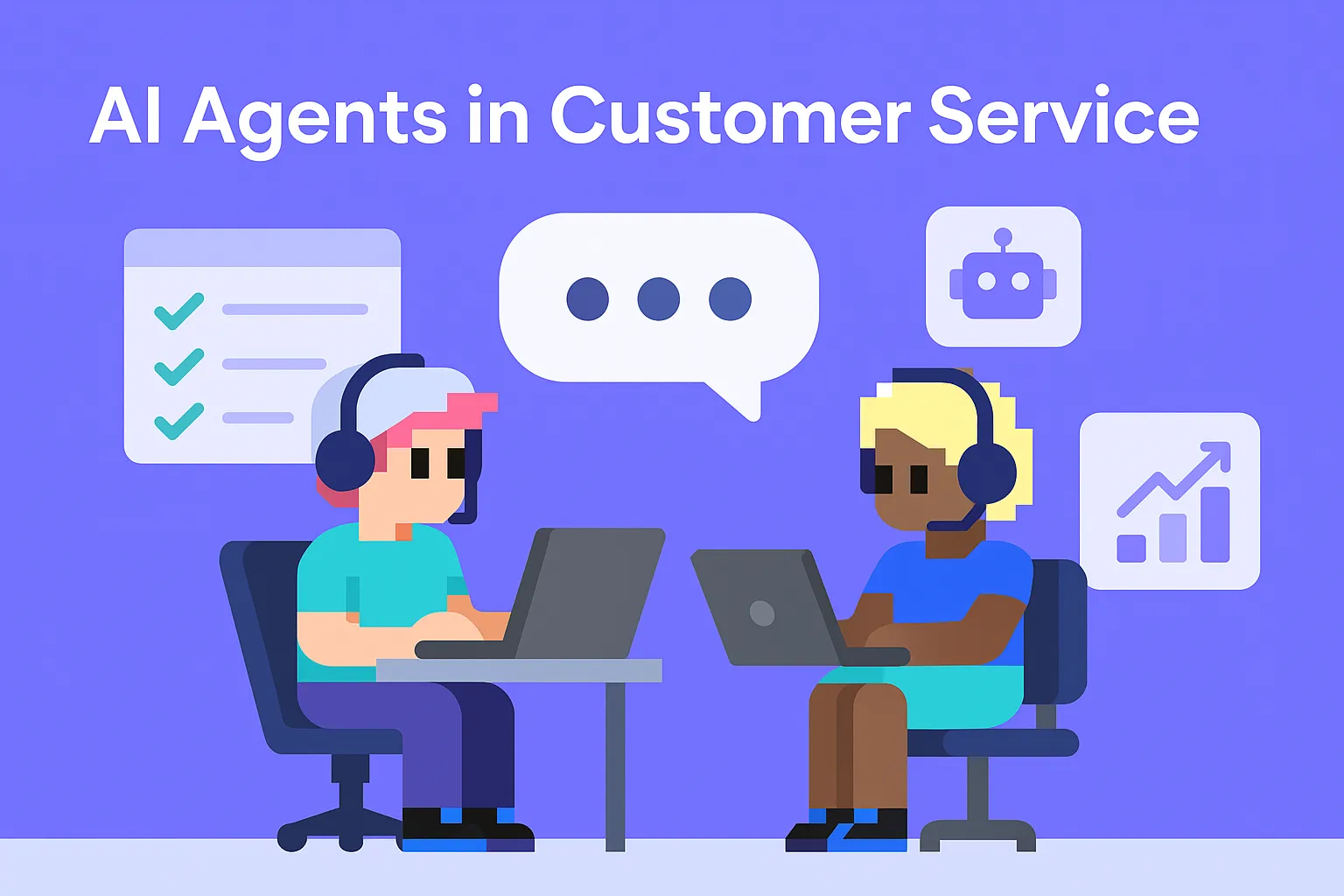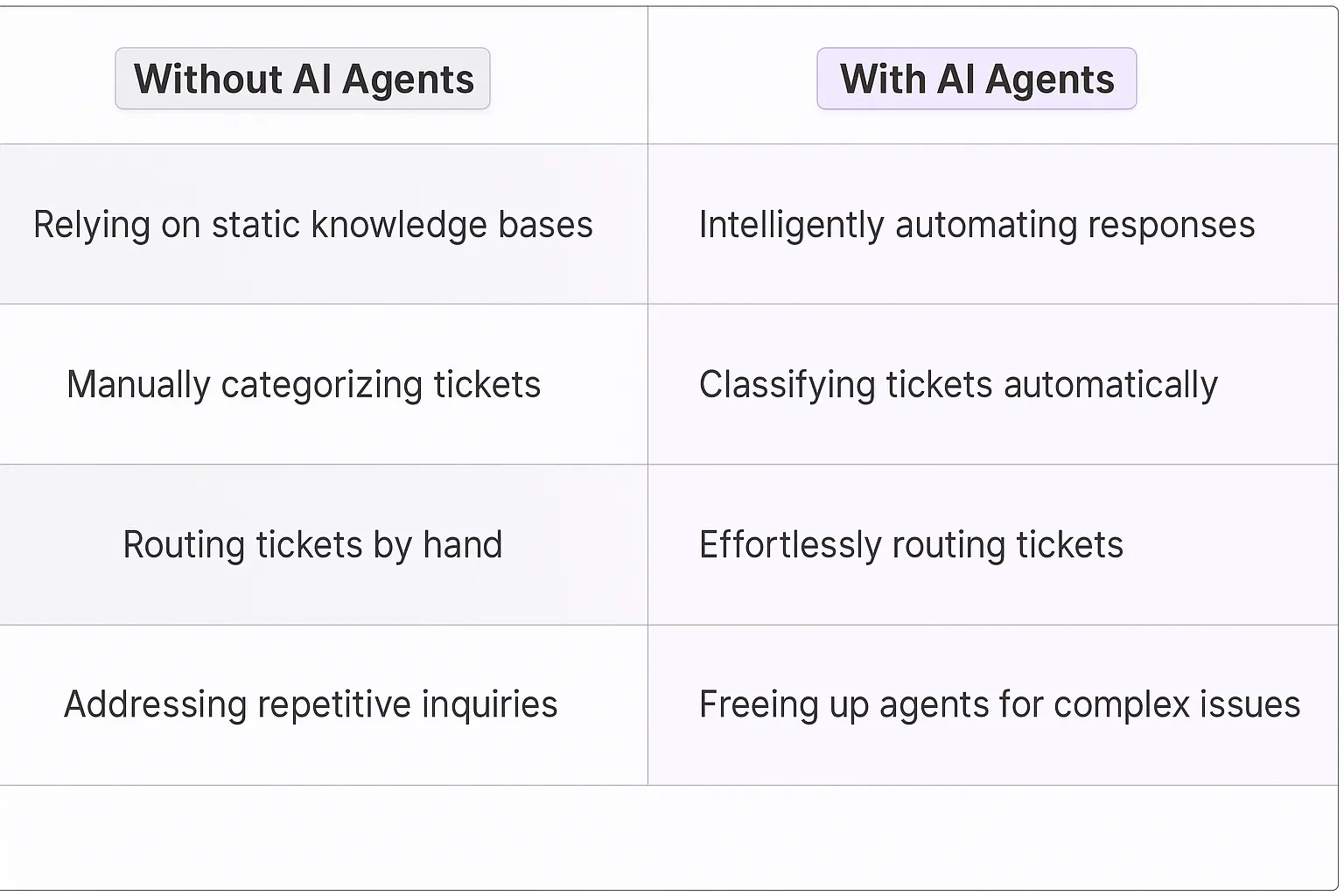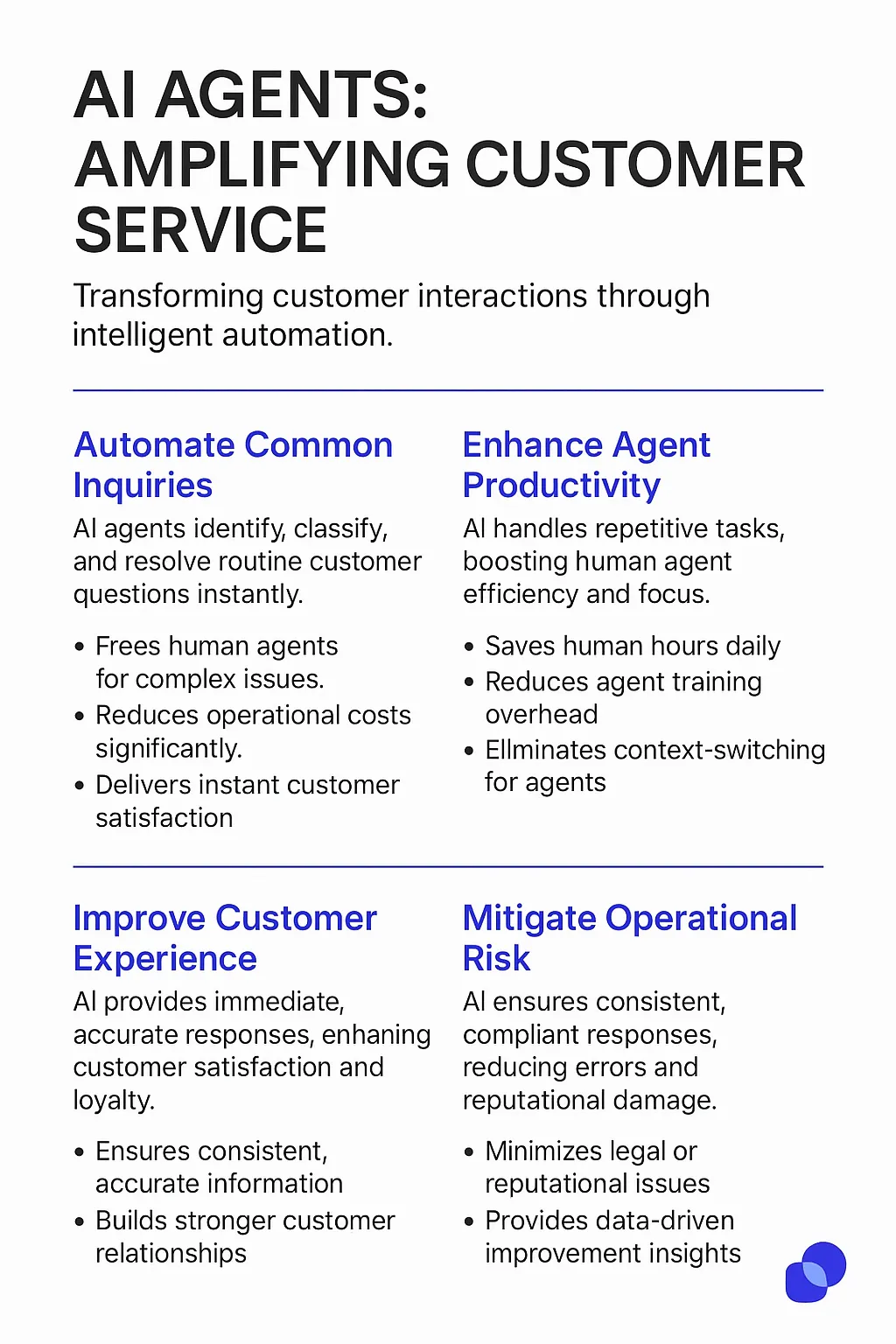Gladly
Understanding Gladly's Customer Service Evolution
Gladly stands out as a customer service platform that breaks away from traditional ticket-based systems. The platform organizes customer conversations by person rather than ticket number, enabling seamless communication across multiple channels. At its core, Gladly focuses on delivering radically personal customer service that treats people like people, not case numbers.
Key Features of Gladly
The platform excels in several critical areas that define modern customer service:
- People-centered conversation management that maintains context across all channels
- Intelligent routing that matches customers with the most qualified agents
- Comprehensive customer profiles that provide agents with complete interaction history
- Built-in knowledge base integration for quick access to accurate information
- Advanced analytics and reporting capabilities for performance optimization

Benefits of AI Agents for Gladly
What would have been used before AI Agents?
Customer service teams using Gladly previously relied on static knowledge bases, manual ticket routing, and human agents handling every customer interaction from scratch. Support teams spent countless hours categorizing tickets, searching through documentation, and handling repetitive inquiries that drained their energy and creativity.
What are the benefits of AI Agents?
AI Agents transform Gladly's customer service capabilities through intelligent automation that amplifies human potential rather than replacing it. These digital teammates handle the heavy lifting of ticket classification, routing, and initial response drafting - giving human agents more bandwidth for complex problem-solving and relationship building.
The most compelling benefit is how AI Agents learn from every interaction to continuously improve their understanding of customer needs. They analyze conversation patterns, identify common issues, and refine their responses based on what actually works. This creates a powerful feedback loop where the system gets smarter over time.
For support teams, AI Agents eliminate the cognitive load of context-switching between different tools and knowledge bases. They surface relevant information exactly when needed and can handle multiple conversations simultaneously without quality degradation. This allows human agents to focus on high-value interactions that truly require emotional intelligence and creative problem-solving.
From a metrics perspective, AI Agents drive significant improvements in first-response time, resolution rates, and customer satisfaction scores. But the real game-changer is how they enable support teams to scale personalized service without proportionally increasing headcount - creating better experiences for both customers and agents.
The network effects are particularly powerful: as more companies adopt AI Agents in Gladly, the collective intelligence of the system grows, benefiting the entire ecosystem. This creates a sustainable competitive advantage that becomes harder to replicate over time.

Potential Use Cases of AI Agents with Gladly
Processes
AI Agents transform customer service operations in Gladly by managing complex, multi-step processes that typically require significant human intervention. The agents excel at routing customer inquiries based on sentiment analysis and issue complexity, ensuring the most urgent matters receive immediate attention.
When integrated with Gladly's customer service platform, AI Agents can automatically categorize and prioritize support tickets while maintaining detailed interaction histories. They analyze patterns in customer communication to identify recurring issues and proactively suggest solutions before problems escalate.
Tasks
The granular task execution capabilities of AI Agents within Gladly create measurable improvements in customer service efficiency:
- Automated response drafting for common customer inquiries, maintaining brand voice and personality
- Real-time translation services for global customer communications
- Intelligent ticket routing based on agent expertise and availability
- Customer sentiment analysis and escalation triggers
- Automated follow-up scheduling and customer satisfaction monitoring
- Knowledge base article suggestions based on conversation context
AI Agents can handle routine tasks while human agents focus on complex problem-solving and relationship building. They monitor customer interactions across multiple channels, ensuring consistent service quality regardless of how customers choose to communicate.
The integration enables support teams to scale their operations without sacrificing personalization. AI Agents learn from each interaction, continuously improving their ability to handle customer needs while maintaining the human touch that defines great customer service.
For companies managing high-volume customer support operations, AI Agents within Gladly reduce response times from hours to minutes. They maintain detailed conversation histories and customer preferences, creating a more cohesive support experience that feels personal and attentive.

Industry Use Cases
The integration of AI agents within Gladly's customer service platform represents a significant shift in how companies handle customer interactions. Drawing from my experience analyzing customer service technologies, I've observed AI agents becoming essential team members rather than just support tools. They're particularly effective at augmenting human capabilities across multiple sectors, creating what I call "hybrid service environments" where digital and human expertise combine seamlessly.
When we look at real-world applications, we see AI agents in Gladly taking on increasingly sophisticated roles. They're not just handling basic queries - they're actively participating in complex customer journeys, learning from each interaction, and adapting their responses based on customer history and context. This creates a multiplier effect where each human agent's capabilities are enhanced by their digital counterparts.
The following industry examples demonstrate how Gladly's AI agents transform customer service operations while maintaining the personal touch that defines great customer experiences. These aren't theoretical use cases - they're battle-tested implementations that show the practical impact of AI in customer service environments.
Retail: AI-Powered Customer Experience That Drives Revenue
The retail landscape has fundamentally shifted - customers expect responses within minutes, not hours. Major retailers are discovering that Gladly AI Agents serve as digital teammates who can handle complex customer inquiries across every channel while maintaining the brand's unique voice.
Take a high-growth direct-to-consumer fashion brand processing 50,000+ customer conversations monthly. By implementing Gladly AI Agents, they've created a system where AI handles initial customer contact for common scenarios like order tracking, returns, and size exchanges. The AI analyzes previous successful customer interactions to provide accurate, contextual responses that feel personal.
The results are compelling: The brand now resolves 40% of customer inquiries without human intervention, while maintaining a 92% customer satisfaction score. More importantly, the AI's ability to instantly process order history and previous interactions means customers receive proactive suggestions for complementary products, driving a 15% increase in repeat purchases.
What's particularly noteworthy is how the AI adapts its communication style based on customer signals. When detecting frustration in a customer's message about a delayed shipment, it adjusts its tone to be more empathetic and proactively offers solutions like expedited shipping or a discount code.
The human customer service team now focuses on high-value interactions that require emotional intelligence and complex problem-solving, leading to higher job satisfaction and reduced turnover. This combination of AI efficiency and human expertise has resulted in a 30% reduction in customer resolution time while increasing average order value by 22%.
Travel & Hospitality: AI-Driven Guest Experience That Transforms Loyalty
The travel industry operates on razor-thin margins where customer experience makes or breaks brand loyalty. A major international hotel chain demonstrates how Gladly AI Agents can transform guest satisfaction while improving operational efficiency.
This hotel chain handles over 100,000 guest interactions monthly across 200+ properties. Their implementation of Gladly AI Agents created a sophisticated system that manages everything from room preferences to local recommendations. The AI analyzes patterns from millions of past guest interactions to provide personalized responses that reflect each property's unique character.
The numbers tell a compelling story: The AI now handles 45% of guest inquiries independently, maintaining a 94% satisfaction rate. The system excels at managing reservation modifications, concierge requests, and loyalty program questions. When a guest messages about restaurant recommendations, the AI pulls from both their dining history and real-time availability to make relevant suggestions.
Most fascinating is the AI's ability to detect opportunities for experience enhancement. When processing a room change request, it automatically checks inventory, guest history, and potential upgrades - often turning service recovery moments into revenue opportunities. This proactive approach has led to a 25% increase in upgrade acceptance rates.
The hotel's human teams now concentrate on creating memorable moments and handling complex situations that require nuanced understanding. This strategic reallocation of human resources has reduced guest complaint escalations by 35% while increasing guest loyalty program enrollment by 28%.
The integration showcases how AI can enhance the human element in hospitality rather than replace it. Staff report spending 40% more time on meaningful guest interactions, while the AI handles routine tasks with consistency and speed. The result: a 20% improvement in guest satisfaction scores and a 15% increase in repeat bookings.
Considerations and Challenges
Implementing Gladly AI agents requires careful planning and strategic consideration across multiple dimensions. The path to successful deployment involves navigating both technical complexities and organizational dynamics.
Technical Challenges
Data integration represents one of the most significant hurdles when deploying Gladly AI agents. Organizations must ensure their existing customer data infrastructure can seamlessly connect with Gladly's systems. This often requires building custom APIs and maintaining data synchronization across platforms.
Security protocols need thorough evaluation, especially regarding customer data handling and compliance requirements. Teams must implement proper encryption methods and access controls while maintaining GDPR, CCPA, and other regulatory compliance standards.
Operational Challenges
Change management becomes crucial as support teams transition to working alongside AI agents. Customer service representatives need comprehensive training to understand when to delegate tasks to AI agents and when to handle interactions personally.
Setting realistic expectations about AI capabilities helps prevent friction during implementation. While Gladly's AI agents can handle many routine inquiries, they're not meant to replace human judgment in complex scenarios or emotional situations.
Performance Monitoring
Establishing meaningful metrics for AI agent performance requires careful consideration. Traditional customer service KPIs may need adjustment to accurately reflect the hybrid nature of human-AI collaboration. Teams should develop new frameworks for measuring success that account for both efficiency gains and customer satisfaction.
Cost Considerations
Beyond the initial implementation costs, organizations must account for ongoing optimization and maintenance expenses. This includes regular model training, system updates, and potential customization needs as business requirements evolve.
The total cost of ownership should factor in both direct platform costs and indirect expenses like team training, integration development, and potential temporary productivity dips during the transition period.
AI-Human Synergy: The Future of Customer Experience
The integration of AI Agents with Gladly represents a significant evolution in customer service technology. By combining AI's processing power with human emotional intelligence, organizations can deliver exceptional customer experiences while maintaining operational efficiency. The success stories across retail, travel, and other sectors demonstrate that this isn't just a technological advancement - it's a fundamental shift in how businesses can build stronger customer relationships.
The network effects and continuous learning capabilities of these AI systems suggest that early adopters will gain significant competitive advantages. As these systems mature, the gap between companies that embrace this technology and those that don't will likely widen, making now the critical time for organizations to begin their AI transformation journey.













